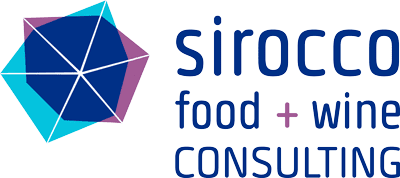Receiving a letter from the U.S. Food and Drug Administration (FDA) or the Canadian Food Inspection Agency (CFIA) stating that your Foreign Supplier Verification Program (FSVP) or Preventive Control Plan (PCP) has not been developed is not just an administrative hiccup, it’s a serious regulatory matter. If ignored, it can lead to costly enforcement actions, fines, and business disruptions.
1. Understanding What the Letter Means
From a legal perspective, the letter is a formal notice that your business is not in compliance with mandatory food safety regulations in the U.S. or Canada. It signals that the agency has identified a gap (either through an inspection, document review, or import verification check) that you have failed to prepare and implement a required written plan.
• In the U.S.: The FSVP is a legal requirement under the Food Safety Modernization Act (FSMA), requiring U.S. importers to verify that their foreign suppliers meet U.S. safety standards.
• In Canada: The PCP is required under the Safe Food for Canadians Regulations (SFCR) for most food businesses, especially those importing, exporting, or engaging in interprovincial trade.
Official References:
• U.S.: 21 CFR Part 1, Subpart L — Foreign Supplier Verification Programs (FSVP)
• Canada: Safe Food for Canadians Regulations (SFCR), Part 4 — Preventive Controls, published in the Canada Gazette, Part II, Vol. 152, No. 14 (July 4, 2018)
2. What is FSVP and PCP?
Foreign Supplier Verification Program (FSVP) – U.S.
The FSVP requires importers to verify that the food they bring into the U.S. is produced in compliance with U.S. safety standards.
Key elements include:
• Identifying and approving foreign suppliers.
• Conducting hazard analyses for each product.
• Verifying supplier controls (e.g., audits, testing, review of records).
• Taking corrective actions when suppliers do not meet requirements.
• Maintaining written records for at least two years.
Reference: 21 CFR 1.500–1.514
Preventive Control Plan (PCP) – Canada
The PCP is a comprehensive food safety system required for most food businesses under the SFCR. It must outline how you meet safety, traceability, and labeling requirements.
Key components include:
• Hazard identification and preventive controls.
• Monitoring and verification procedures.
• Corrective action protocols.
• Documented training for employees.
• Traceability and recall procedures.
Reference: SFCR, Part 4 – Preventive Controls
3. Risks of Ignoring the Letter
Failing to address this notice can escalate into enforcement action, which may include:
• Refusal of entry for imported goods (FDA or CFIA can detain shipments at the border)
• Administrative monetary penalties (AMPs in Canada) or civil money penalties in the U.S.
• Product seizure orders
• Suspension or cancellation of licenses (e.g., Safe Food for Canadians Licence)
• Criminal prosecution for repeated or willful violations
4. Immediate Next Steps

Step 1: Read the Letter Carefully
Identify exactly what the agency flagged, whether it’s a complete absence of a plan or specific missing sections.
Step 2: Engage Your Compliance Team or Consultant
Work with regulatory experts experienced in FSVP or PCP to ensure your plan meets all requirements.
Step 3: Develop and Implement the Required Plan
• For FSVP: Identify each foreign supplier, conduct hazard analyses, verify compliance, and keep written records.
• For PCP: Document hazards, preventive controls, monitoring, corrective actions, and verification procedures.
Step 4: Respond to the Agency
Provide a written corrective action plan within the stated deadline. Clearly outline what has been done, what is in progress, and when full compliance will be achieved.
Step 5: Train Staff
Ensure employees understand their role in maintaining ongoing compliance.
5. The Importance of Record Keeping

Both FDA and CFIA require that documentation be:
• Written, current, and readily available for inspection.
• Retained for the legally prescribed time frame (FSVP: at least 2 years; PCP: as per SFCR).
• Organized to show a clear compliance trail.
Good record keeping not only proves compliance but also serves as a defense in enforcement situations.
Bottom Line
A notice from the FDA or CFIA about missing FSVP or PCP plans is a regulatory red flag. The fastest way to protect your business is to act immediately, seek expert help if needed, and put in place robust, well-documented systems to ensure compliance going forward. Sirocco Consulting specializes in guiding food businesses through FDA and CFIA compliance, helping you build airtight FSVP and PCP plans so you can stay certified, confident, and market-ready. Contact Sirocco today for expert support that protects your business and keeps you compliant.
In food safety law, prevention is not just best practice, it’s the law.
Sirocco Food and Wine Consulting offers full-service consulting tailored for small to medium-sized businesses, including:
- FSMA Preventive Controls Plans for U.S. operations
- Foreign Supplier Verification Program (FSVP) as PCQI-approved agents—helping with supplier evaluation, risk assessment, plan development, monitoring, and FDA liaison
- HACCP Plans, SQF Certification & Gap Assessments, including support for SQF Edition 10
- Canadian offerings such as SFCR–compliant Preventive Control Plans (PCP) and the Canadian Food Safety Enhancement Program (FSEP)
- Food Fraud Vulnerability Assessments and Good Manufacturing Practices (GMP) consulting





